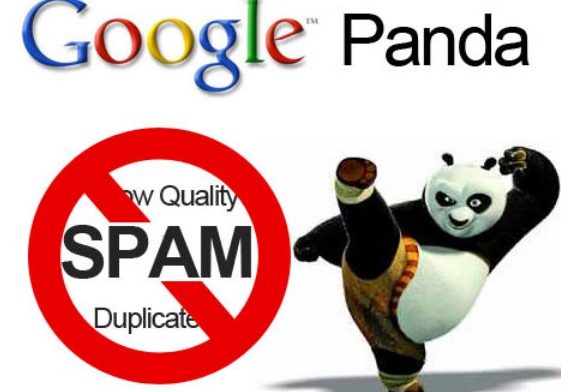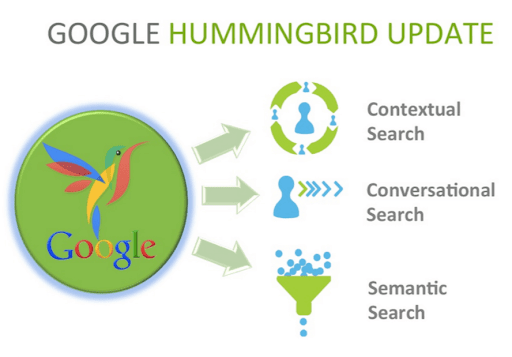
What are Google Algorithms?
Google’s algorithms are a complex system used to retrieve data from its search index and instantly deliver the best possible results for a query. In its early years, Google only made a few updates to its algorithms. From 2011 Onwards Google makes thousands of strong changes every year. Some of the stream algorithm changes are listed below.
- Panda Algorithm Update.
- Penguin Algorithm update:
- Pigeon algorithm update:
- Humming bird Algorithm
- Rank Brain Algorithm
- Mobile Geldon Algorithm
- Parked Domain Algorithm
- Exact Match Domain Algorithm
- Pirate Update
- Bracket Update
- Possum Update
- Medic Core Algorithm Update
- Fred Algorithm
- BERT Algorithm
Panda Algorith Update

Panda algorithm is the first major algorithm applied on February 24, 2011. It is also called as Farmer update. This Algorithm change is against content, spamming punishable content, spamming activities are Duplication, Plagiarizam. Content spinning, Automated content, Thin pages, Anchor text sniffing, Keyword stuffing. Etc.
A major development of the panda algorithm took place in 2014 and it was Panda update 4.0. This version included a fundamental improvement of the entire algorithm. Further quality criteria were used. A permanent filter is added in this version which filter the thin page content content spamming etc. Even in the same year, the algorithm version was again improved and updated its the second stage updation in 2015, the Panda update 4.2. With the enhancements of the Panda update websites got the opportunity to get out of the filter if improvements to the site were undertaken.
Since 2016, the Panda algorithm has belonged to the core algorithm for Google. The Panda update has a central influence on the ranking of a website.
Penguin Algorithm

The Google’s Penguin Update was first carried out in and named the ‘Webspam Algorithm Update’. It was created by Google against the web master’s link spamming. Webmasters use a low quality link to rank their pages. Penguin update help reduce the number of sites appearing in SERPs that were using black hat SEO techniques to manipulate results with link schemes. It is also now part of Google’s core algorithm. Google punished paid link using penguin Algorithm. And also punished more Black hat practices that carried out by webmasters for ranking. They are
- Link Exchange: Exchanging money for links, goods and services for links, or sending someone free products in exchange for including a link in an article are all considered paid link spam techniques that should be avoided.
- Link Farming: Creating a group of websites that all link to other sites in the group for the purpose of increasing SEO rankings is called a link farm.
- Comment spamming: Posting links in comments is a popular link spam technique that does more harm than good for the target site owner. The backlink spamming practice is being used for search ranking manipulation.
- Wiki Spamming: Using edit option in the Wikipedia webmasters sign in to Wikipedia and write content with their link is t
- Guest Blogging
- Quality Directory : Creating profiles on directory sites and linking back to your website at scale is a spammy backlink method that can get your site penalized during a Google algorithm update.
Penguin 4.0 makes punishments, real time
Pigeon Algorithm

One of Google’s biggest-impact algorithm updates were implemented for the sake of local search results, and local businesses typically saw the effects of the update in their website’s analytics data.
- Pigeon algorithm relates to local SEO.
- It is to improve local visibility of your website and attract local audiences.
- updated on 2013
- To list your website locally with an embedded map on its page. You have to submit your website in ” google my business”.
- Submit in local directories.
Humming Bird Algorithm

Humming Bird Algorithm introduced semantic search result (very deep search result) . A search engine’s attempt to generate the most accurate SERP results possible by understanding based on searcher intent, query context, and the relationship between words. These types of search result are called semantic search result. And the search engine which gives the result is called semantic search engine. One of Google’s biggest-impact algorithm updates were implemented for the sake of local search results, and local businesses typically saw the effects of the update in their website’s analytics data.
Rank Brain Algorithm
- The rank Brain algorithm is an improved version of Humming Bird Algorithm.
- Rank Brain Algorithm update introduced Artificial intelligence.
- Rank Brain Algorithm updation implemented on a spring season of 2015.
- Google does not publish it official when they implemented it.
- Google gives search result, according to the search query entered by the user.
- Google has given search result as a human with the help of artificial intelligence.
- Search result given according to area, social status so many different categories.
- Artificial intelligence is introduced in the year 2015.
Mobile Geddon Algorithm

- Mobile Geddon Algorithm is implemented on April 21st 2015.
- This algorithm gives more importance to mobile friendly websites.
- The main purpose of this algorithm is to ensure best ranking result to the mobile friendly websites.
- Mobile friendly doesn’t mean it’s just a website that could be able to open on mobile.
- User can open as well as can read the content without taping or zooming.
- The website which supports vertical scrolling not horizontal.
- The spacings of tabs for user convenience to navigate.
- A special database called AMP project was created in 2017 to store mobile friendly data for quick access
- 2018 version ensured quick loading websites rank higher in search
Parked Domain Update
- A parked domain is a new algorithm for automatically detecting parked domains. Booking a domain for future use .
- Parked domains are placeholder sites that are seldom useful and often filled with ads.
- It is the updation in algorithm not to show the parked domains in the search results.
- They typically don’t have valuable content for our users.
EMD Algorithm Update

- EMD Stands for Exact Match Domain
- Exact Match Domin Algorithm update was implemented on 28thSeptember 2012.
- It takes focusing keyword as its domain name and there is nothing in the contents
- The purpose of the algorithm is to punish or remove the EMD sites from listing in google.
Pirate Algorithm Update

Google constantly changes its algorithms with the motive of targeting different aspects of the web world and to make it easier for users to get quality content.
This algorithm update was launched in August 2012. This algorithm targets and identifies website content that violates the Digital Millennium Copyright Act, or DMCA. Google aimed at punishing the websites that breached the copyright act. The punishment would be bringing down a certain website’s ranking on Google’s search results page.
Bracket Algorithm Update
The brackets core update was the most recent Google update to its core algorithm on march 2018. The update changed how the search engines rank sites based on quality content. This update was done to prevent Review manipulation”. Writing manipulated review is punishable.
Possum Algorithm Update
The possum Algorithm update is implemented on September 1st 2016
“Possum” is an update to GGoogle’s local search ranking algorithm and it decides when businesses will show up in local search results, sometimes filtering business listings out of search results. This means that some local businesses might not always appear in the same search.
It is related to google’s local search ranking algorithm.
This algorithm filter realtime results in local searches.
Medic Core Algorithm Update
The Google Medic update was a Google algorithm update in late 2018. While the update affected numerous industries. Most of the webpages that were affected are Pages that can potentially impact the future health, happiness, or wealth. If
FRED Algorith Update
Google Fred is an algorithm update that targets black-hat tactics tied to monetization. This includes a lot of ads, low-value content, and little added user benefits. Fred Algorithm is bringing forward to punish the websites that give more importance to advertizing ads than the core content in it.
BERT Algorithm Update
- BERT stands for Bidirectional Encoder Representation From Transformers
- This algorithm update was implemented to process natural language and colloquial words.
- Google said BERT helps better understand the nuances and context of words in searches and better match those queries with more relevant results.
- It is also used for featured snippets.
- New languages were included, English in Oct 2019 and 7 other languages, including Hindi subsequently in 2020
Leave a comment